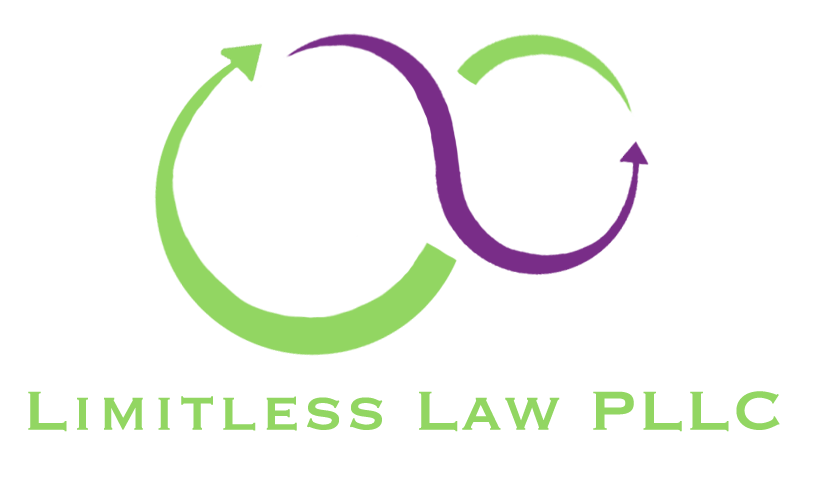Adding Your Adult Child to Your Bank Account? Proceed with Caution!

Here at Limitless Law PLLC, in beautiful Bellingham, Washington, we often help families navigate the complexities of estate planning. A common scenario we encounter is parents considering adding an adult child to their bank account. While the intention is often convenience, or assistance with future planning, this seemingly simple act can open a Pandora's Box of unintended consequences, particularly when it comes to estate planning and, surprisingly, even bankruptcy.
Before you add your child's name to your account, let's shed some light on the potential pitfalls:
Estate Planning Headaches: The Money Might Not Go Where You Think!
- Unintended Inheritance: When you add your adult child as a joint owner "with right of survivorship," the funds in that account automatically become theirs upon your passing, regardless of what your will states. This means if you have other children or beneficiaries, they could be unintentionally disinherited from those specific funds. Your carefully crafted estate plan could be undermined by a simple bank account designation.
- Loss of Control: Once your child is a joint owner, they have the legal right to withdraw funds for their own use. Even if that's not their intention, life happens. What if they face unexpected financial difficulties? Those funds, meant for your care or other beneficiaries, could be at risk.
- Gift Tax Implications: Depending on the amount and your intentions, adding your child as a joint owner could be considered a taxable gift by the IRS. While the annual gift tax exclusion is currently $19,000 per person, exceeding that could trigger reporting requirements and potentially even gift tax liability.
- Complicating Estate Administration: If the account passes directly to the joint owner, it might bypass the probate process for that specific asset. While this can seem like a benefit, it can complicate the overall estate administration, especially when trying to fairly distribute other assets according to your will.
Bankruptcy Blues: Your Assets Could Be at Risk Due to Your Child's Financial Troubles!
This is where things can get particularly tricky and often catches people off guard:
- Your Assets at Risk in Your Child's Bankruptcy: If your adult child faces bankruptcy, the funds in your jointly held account could be considered part of their assets and therefore subject to the claims of their creditors. Even if all the money in the account is yours, proving that can be a difficult and costly legal battle. You could find yourself fighting to protect your money from your child's financial woes.
- "Fraudulent Transfer" Concerns: If your child is facing financial difficulties and you add them to your account shortly before they file for bankruptcy, it could be viewed as a "fraudulent transfer" intended to shield assets from their creditors. This can lead to further legal complications and potentially even accusations of wrongdoing.
So, What's the Alternative?
Instead of adding your child as a joint owner, consider these safer and more effective estate planning tools:
- Power of Attorney: Granting your trusted adult child a financial power of attorney allows them to manage your finances on your behalf if you become incapacitated, without giving them ownership of your assets. This maintains your control while providing necessary assistance.
- Payable-on-Death (POD) or Transfer-on-Death (TOD) Designations: These designations allow you to name beneficiaries who will receive the funds in your account directly upon your death, bypassing probate for that specific asset while keeping ownership solely in your name during your lifetime.
- Trusts: For more complex situations or larger estates, a trust can provide greater control over asset distribution, protect assets from creditors, and potentially minimize estate taxes.
- Clear Estate Planning: The most crucial step is to have a comprehensive estate plan in place, created with the guidance of an experienced estate planning attorney. This ensures your assets are distributed according to your wishes and minimizes potential legal headaches down the road.
The Bottom Line:
While the impulse to add your adult child to your bank account might stem from love and a desire to help, it can inadvertently create significant legal and financial risks. Before making such a decision, take the time to understand the potential pitfalls and explore safer, more effective estate planning strategies.
The team at Limitless Law PLLC is here to help you navigate these important decisions and create an estate plan that truly reflects your wishes and protects your assets. Contact us today for a consultation – we're happy to guide you through the process!
This blog post is for informational purposes only and does not constitute legal advice. For personalized guidance on estate plannning in Washington State, please contact our office at Limitless Law to schedule your strategy session with our attorney. Call 360-685-0145 or click here to learn more.






